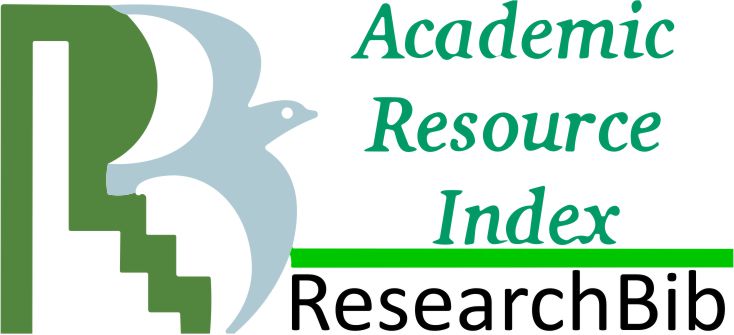DOI
10.21002/jaki.2018.11
Abstract
This study aims to investigate the CEO behavior in managing earnings during his tenure. This study predicts that the CEO will overstate earnings in the early years and the final year of his service. Prior studies investigating earnings management only focused on either the early years or the final year of CEO service without considering CEO tenure between the early years and the final year of CEO service. Study investigating earnings management during CEO tenure was still scarce (Ali and Zhang 2015). Further, prior studies predicted that new CEO would engage in income-decreasing earnings management that was explained by big bath theory. However, this study predicts that CEO in early years of their services will engage in income-increasing earnings management that can be explained by career concern theory. Therefore, this study contributes to fill the gap in the literature. Using the sample of nonfinancial companies listed in the Indonesia Stock Exchange from 2005 to 2014, this study finds that CEO will overstate earnings in the early years of his services. However, this study does not find that CEO overstate earnings in the final year of his services.
References
Adiasih, P. dan I. W. Kusuma. 2011. Ma-najemen Laba Pada Saat Pergantian CEO (Dirut) di Indonesia. Jurnal Akuntansi dan Keuangan, 13 (2), 67-79. Ali, A. dan W. Zhang. 2015. CEO Tenure and Earnings Management. Journal of Accounting and Economics, 59, 60–79. Baik, B., D. B. Farber, dan S. Lee. 2011. CEO Ability and Management Earnings Forecasts. Contemporary Accounting Research, 28 (5), 1645–1668. Barton, J. dan P. J. Simko. 2002. The Bal-ance Sheet As An Earnings Man-agement Constraint. The Account-ing Review, 77, 1-27. Barua, A., J. Legoria, dan J. S. Moffitt. 2006. Accruals Management to Achieve Earnings Benchmarks: A Comparison of Pre-managed Profit and Loss Firms. Journal of Business Finance and Accounting, 33 (6), 653–670. Bassiouny, S. W., M. M. Soliman, dan A. Ragab. 2016. The Impact of Firm Characteristics on Earnings Man-agement: An Empirical Study on The Listed Firms in Egypt. The Business and Management Review, 7 (2), 91-101. Bedard, J., S. M. Chtourou, dan L. Cour-teau. 2004. The Effect of Audit Committee Expertise, Independ-ence, and Activity on Aggressive Earnings Management. Journal of Practice And Theory, 23 (2), 13-35. Bornemann, S., T. Kick, A. Pfingsten, dan A. Schertler. 2015. Earnings Baths By CEOs During Turnovers: Empir-ical Evidence From German Sav-ings Banks. Journal of Banking And Finance, 53, 188–201. Caton, G. L., C. N. Chiyachantana, C. T. Chua, dan J. Goh. 2011. Earnings Management Surrounding Sea-soned Bond Offerings: Do Manag-ers Mislead Ratings Agencies And The Bond Market?. Journal of Fi-nancial and Quantitative Analysis, 46 (3), 687–708. Cohen, D. A. dan P. Zarowin. 2010. Ac-crual-Based and Real Earnings Management Activities around Sea-soned Equity Offerings. Journal of Accounting and Economics, 50 (1), 2-19. Choi, J. S., Y. M. Kwak, dan C. Choe. 2014. Earnings Management Sur-rounding CEO Turnover: Evidence From Korea. ABACUS, 50 (1), 25-55. Davidson, W. N., B. Xie, W. Xu, dan Y. Ning. 2007. The Influence of Exec-utive Age, Career Horizon and In-centives on Pre-Turnover Earnings Management. J Manage Govern-ance, 11, 45–60. DeFond, M. L. dan J. Jiambalvo. 1994. Debt Covenant Violation and Ma-nipulation of Accruals. Journal of Accounting and Economics, I7, 145-176. Defond, M. L. dan M. Hung. 2004. Inves-tor Protection and Corporate Gov-ernance: Evidence From World-wide CEO Turnover. Journal of Accounting Research, 42 (2), 269-312. Demers, E. dan C. Wang. 2010. The Im-pact of CEO Career Concerns on Accruals Based and Real Earnings Management. Working Paper, The Business School For the World, INSEAD, Fontainebleau, France. Desai, H., C. E. Hogan, dan M. S. Wilkins. 2006. The Reputational Penalty for Aggressive Accounting: Earnings Restatements And Management Turnover. The Accounting Review, 81 (1), 83-112. Fama, E. F. 1980. Agency Problems and The Theory of The Firm. Journal of Political Economy, 88 (2), 288-307. Francis, J., A. H. Huang, S. Rajgopal, dan A. Y. Zang. 2008. CEO Reputation and Eamings Quality. Contempo-rary Accounting Research, 25 (1), 109-47. Gibbons, R. dan K. J. Murphy. 1992. Op-timal Incentive Contracts in The Presence of Career Concerns: Theo-ry and Evidence. Journal of Politi-cal Economy, 100 (3), 468-505. Guan, L., C. J. Wright, dan S. L. Leikam. 2005. Earnings Management and Forced CEO Dismissal. Advances in Accounting, 21, 61–81. Hazarika, S., J. M. Karpoff, dan R. Nahata. 2012. Internal Corporate Govern-ance, CEO Turnover, and Earnings Management. Journal of Financial Economics, 104, 44–69. Healy, P. M. 1985. The Effect of Bonus Schemes on Accounting Decisions. Journal of Accounting and Econom-ics, 7, 85-107. Healy, P. M. dan J. M. Wahlen.1999. A Review of The Earnings Manage-ment Literature and Its Implications For Standard Setting. Accounting Horizons, 13 (4), 365-383. Hennes, K. M., A. J. Leone, dan B. P. Mil-ler. 2008. The Importance of Dis-tinguishing Errors From Irregulari-ties in Restatement Research: The Case of Restatements and CEO/CFO Turnover. The Account-ing Review, 83 (6), 1487-1519. Holmstrom, B. 1999. Managerial Incentive Problems: A Dynamic Perspective. The Review of Economic Studies, 66 (1), 169-182. Hribar, P. dan D. W. Collins. 2002. Errors in Estimating Accruals: Implica-tions for Empirical Research. Jour-nal of Accounting Research, 40 (1), 105-134. Jian, M. dan K. W. Lee. 2011. Does CEO Reputation Matter for Capital In-vestments?. Journal of Corporate Finance, 17, 929–946. Jones, J. J. 1991. Earnings Management During Import Relief Investiga-tions. Journal of Accounting Re-search, 29 (2), 193-228. Kalyta, P. 2009. Accounting Discretion, Horizon Problem, and CEO Re-tirement Benefits. The Accounting Review, 84 (5), 1553–1573. Klein, A. 2002. Audit Committee, Board of Director Characteristics, and Earnings Management. Journal of Accounting and Economics, 33, 375–400. Koh, W. L. K. 2007. The Impact of Super-star CEOs on Financial Reporting Practices and Firm Performance. Ph.D dissertation, University of Washington. Land, J. K. 2010. CEO Turnover around Earnings Restatements and Fraud. Pacific Accounting Review, 22 (3), 180-198. Lindrianasari dan J. Hartono. 2012. Ante-cedent and Consequence Factors of CEO Turnover in Indonesia. Man-agement Research Review, 35 (3/4), 206-224. Malmendier, U. dan G. Tate. 2009. Super-star CEOs. The Quarterly Journal of Economics, 124 (4), 1593-1638. Milbourn, T. T. 2003. CEO Reputation and Stock-Based Compensation. Jour-nal of Financial Economics, 68, 233–262. Murphy, K. J. dan J. L. Zimmerman. 1993. Financial Performance Surrounding CEO Turnover. Journal of Account-ing and Economics, 16, 273-315. Reitenga, A. L. dan M. G. Tearney. 2003. Mandatory CEO Retirements, Dis-cretionary Accruals, and Corporate Governance Mechanisms. Journal of Accounting, Auditing and Fi-nance, 18 (2), 255-280. Rhee, C. S. dan B. Moon. 2015. New Chief Executive Officers’ Earnings Forecasts Bias at Their First Year Term and Role of Financial Ana-lysts: Korean Evidence. The Jour-nal of Applied Business Research, 31, 1267-1276. Watts, R. L. dan J. L. Zimmerman. 1990. Positive Accounting Theory: A Ten Year Perspective. The Accounting Review, 65 (1), 131-156. Wells, P. 2002. Earnings Management Sur-rounding CEO Changes. Account-ing and Finance, 42, 169-193. Zhang, W. 2009. CEO Tenure and Earn-ings Quality. Working Paper, School of Management University of Texas at Dallas. Zhang, X., J. T. Wei, dan H. H. Wu. 2013. Forced Financial Information Re-statements and Management Turn-over: Market Discipline and Large Family Shareholders’ Intervention in An Emerging Economy. Asia Pac J Manag, 30, 1005–1029. Zhou, J. dan R. Elder. 2004. Audit Quality and Earnings Management by Sea-soned Equity Offering Firms. Asia-Pacific Journal of Accounting and Economics, 11(2), 95-120.
Recommended Citation
Vernando, Andreas and Rakhman, Fuad
(2018)
"MASA KERJA CEO DAN MANAJEMEN LABA (CEO TENURE AND EARNIGS MANAGEMENT),"
Jurnal Akuntansi dan Keuangan Indonesia: Vol. 15:
No.
2, Article 5.
DOI: 10.21002/jaki.2018.11
Available at:
https://scholarhub.ui.ac.id/jaki/vol15/iss2/5












